Vietnam: finally catching tigers and flies
The Vietnamese state finally answers its people’s call for a corruption-free leadership – what power interests are at play and what are the takeaways for foreign investors?
For some Vietnamese officials, the good times have come to an end. On 10 December 2018, Vietnamese police arrested two executives from state shipping company Vinashin. Truong Van Tuyen, the firm’s managing director, and Pham Thanh Son, Vinashin’s deputy managing director were charged with embezzling USD 4.5 million from the company. The two men are accused of having transferred the money to accounts at Oceanbank, a Vietnamese bank whose former deputy managing director and chairman were sentenced to death and life imprisonment respectively in 2017 over a multi-million dollar fraud (although the sentences could be reduced if the embezzled funds are returned).
This is not the first time that Vinashin has been targeted by anti-corruption watchdogs. In August 2017, two former executives of the shipbuilder's subsidiary Vinashinlines were sentenced to death for embezzling money from shipping contracts completed in between 2006 and 2008.
The harsh punishments reflect a nationwide, government-led anti-corruption campaign, the implications of which extend far beyond one single company or sector, and even beyond Vietnam’s borders. The most spectacular case is perhaps that of Trinh Xuan Thanh, former chairman of PetroVietnam Construction who was sentenced to life for embezzlement in early 2018. Prior to the verdict, Trinh had fled to Germany. However, in July 2017, in a suspected kidnapping regarded as a violation of international law, Trinh was reportedly bundled into a van in broad daylight and transported back to Vietnam to face charges. The signal was clear: the Vietnamese government does not shy away from extraordinary measures to bring back corrupt officials for trial.
Two main factors drive Vietnam’s anti-corruption efforts. The first one is long-term frustration with corruption among many Vietnamese citizens. This has only grown stronger since the death of General Vo Nguyen Giap in October 2013, the last surviving of Vietnam’s founding fathers. A comrade of revolutionary leader Ho Chi Minh and hero of Vietnam’s war of independence, Vo was the face of Vietnamese patriotism whose passing produced a wave of introspection. For many, it marked the end of an austere and idealistic revolutionary leadership starkly different from current leaders in its commitment to the nation and disregard for material temptations.
Building on the popular appeal is the second factor – President Nguyen Phu Trong’s consolidation of power. In October 2018, President Nguyen broke with precedent by becoming both president and General Secretary of the Communist Part of Vietnam (CPV). In May, the CPV approved the formation of a 600-strong elite team who would set terms for the 200-person Central Committee, in a bid to improve accountability.
A political opponent of former Prime Minister Nguyen Tan Dung, who stepped down from his government duties in 2016, President Nguyen has been accused by critics of using the anti-corruption drive to settle scores and go after Nguyen Tan Dung’s remaining allies.
Although anticorruption efforts are usually welcomed by businesses, the crackdown has caused jitters for investors. For example, the highly anticipated privatisation of the mobile carrier MobiFone is currently on hold and the firm’s former chairman investigated after a government investigation squad accused the management of overpaying for a 95% stake in private pay-TV provider Audio Visual Global in late 2015. The lack of political transparency regarding the anti-corruption drive makes it difficult to foresee when, where or whom it will strike next.
Yet the economic climate remains broadly attractive: in 2017, foreign direct inflows hit record highs for two years in a row, reaching USD 319 billion in stock of direct foreign investment.
One thing is clear: while the country’s leadership gets its house in order, there has never been a greater need for thorough due diligence. This is not always straightforward, for a lot of public information is not readily accessible. Corporate, court and regulatory records are limited and often incomplete. It is very difficult to determine the beneficial owners of companies, business interests of individuals or legal and/or regulatory infractions potentially committed by these subjects. Vietnamese mainstream media are also highly censured. Therefore, investigations often have to rely on non-mainstream news outlets, such as dissident portals or online chat forums, whose claims can usually not be verified. For these reasons, the most effective way to ensure peace of mind prior to committing to an investment is often in-country source enquiries to expose unreported wrongdoings and carefully concealed ownership by state officials seeking to launder corrupt money or siphon off state assets.
Wallbrook’s analysts have been active in Vietnam for over a decade. We command a strong network of contacts in the country, ranging from investigative journalists to government affiliates stationed across the region. Our previous work in Vietnam included revealing an extensive bribery scheme perpetrated by a Vietnamese manufacturer to conceal environmental abuse; uncovering links between an Israeli conglomerate active in Vietnam and a fugitive businessman wanted by Bulgarian authorities over embezzlement charges; and exposing widespread bribe-giving committed by employees of a Vietnamese advertising group headed by a Chinese business couple. In all these cases, we helped our clients exit risky partnerships or avoid wasting further resources on pre-transactional screening for a potential investment.

